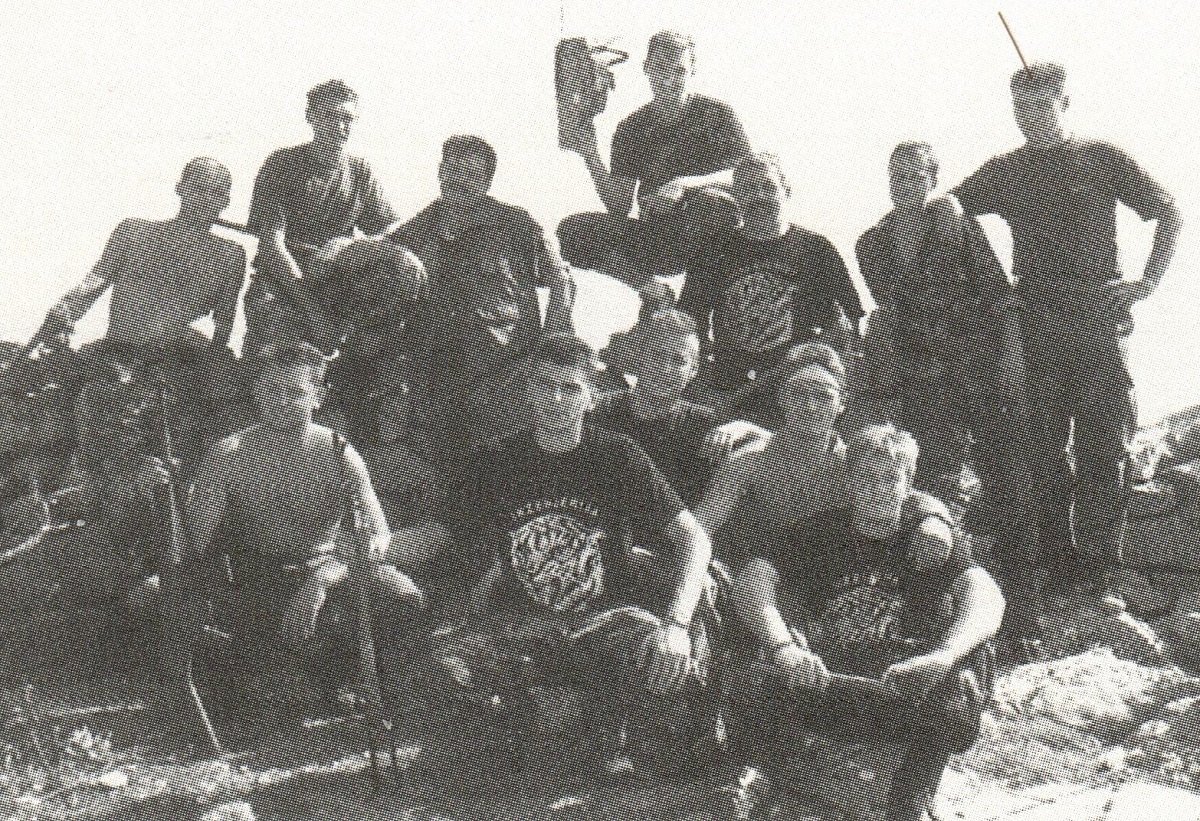It is customary to say something when saying goodbye… give best wishes, shake hands or give a hug. Those of us gathered here part with you forever. We bid you a final farewell, give you a final hug, kiss you for the last time, sob and hope that our faith will bring us together again but not here anymore. We will meet again Ante because it is difficult to accept the fact that you are no more. You, so good, gentle, just, almost perfect, should not have departed… At only twenty-three years of age, you rushed through this life honestly, suddenly and thoughtfully. You fell victim to the worst evil that can happen to us in war but on the side of justice! You defended your Homeland and its dignity, wanting to create a warm and safe nest for the new life for which you were the architect.
Spoken by a comrade-in-arms at the funeral of Ante Kelava, hero of the Homeland War.
Kelava was born on 4 November 1969 in Roško Polje near Tomislavgrad in Bosnia-Herzegovina. He grew up on the Herzegovinian karst with his parents Ivan and Anica and his younger brothers Pero and Nenad. After finishing primary school in his native village, Kelava went to Zagreb where he completed catering secondary school and became a chef employed at the Panorama Hotel in Zagreb. He is remembered as a witty person of cheerful nature. Kelava loved soccer and especially Dinamo Zagreb. Before the war, he was one of the most prominent members of the Bad Blue Boys supporters club as a member of a group known as “ZG80”, which served as the inspiration for the feature film of the same name. According to the recollections of friends, it was Kelava who came up with the name. The “ZG80” members shared a heightened national consciousness and voluntarily joined in the defense of Croatia when the Homeland War began.
In the summer of 1991, Kelava was a conscript in the Yugoslav People’s Army stationed in a town in Serbia. He managed to escape and reached Croatia by train via Belgrade as he recalled in the Glas Koncila publication in August 1991:
When I escaped, I called a fellow soldier at the base to see what the reactions were to my desertion. He told me that the next day the lieutenant colonel called for a briefing especially for me because I was the only one who escaped from the base. He told the soldiers that he personally would like to kill me, that he could not wait to hear that I was killed and that he would celebrate when he hears that. When it came to killing, Serbian television and officers always said that Croats were doing the killing… police of the Ministry of the Interior, national guardsmen and members of the Croatian Democratic Union political party were all doing the killing while it was just fine if the Yugoslav People’s Army (YPA) did so. The lieutenant colonel said he would personally kill me after my escape! It is just like the bearded soldier from Borovo Selo who comes on TV and say that he is not a Chetnik but one of the armed people defending their village from Croatia’s Ustaša government. That same television station that always talks about the defenseless Serbs in Croatia… defenseless and armed at the same time. That shows you what they are like… the army officers and television are liars.
Immediately upon returning to Zagreb, Kelava volunteered for the Croatian National Guard and joined the 1st A “Tigers” Brigade with which he served on numerous battlefronts. He was seriously injured in a car accident in Zagreb and after fighting for his life for a few days, Kelava died on 21 November 1992. As the priest told his parents not to lose hope because death is not the end, Kelava was laid to rest in the local cemetery in Roško Polje.
Graduated with a Master’s Degree in History from the University of Zagreb. He has worked at the Croatian History Museum and as a researcher for the popular TV Calendar program for Croatian Radio and Television. He has authored several books and documentaries about Croatia’s Homeland War and is the creator/producer of the immensely popular “It Happened on this Day – Homeland War” Facebook page as well as the online portal Domovinskirat.hr. Borna also is the host and editor of the daily segment “Patriotic Minutes” on Croatian Catholic Radio. He created CroHis to promote the values of the Homeland War and ensure that the sacrifices of those who defended Croatia’s independence would not be forgotten.

